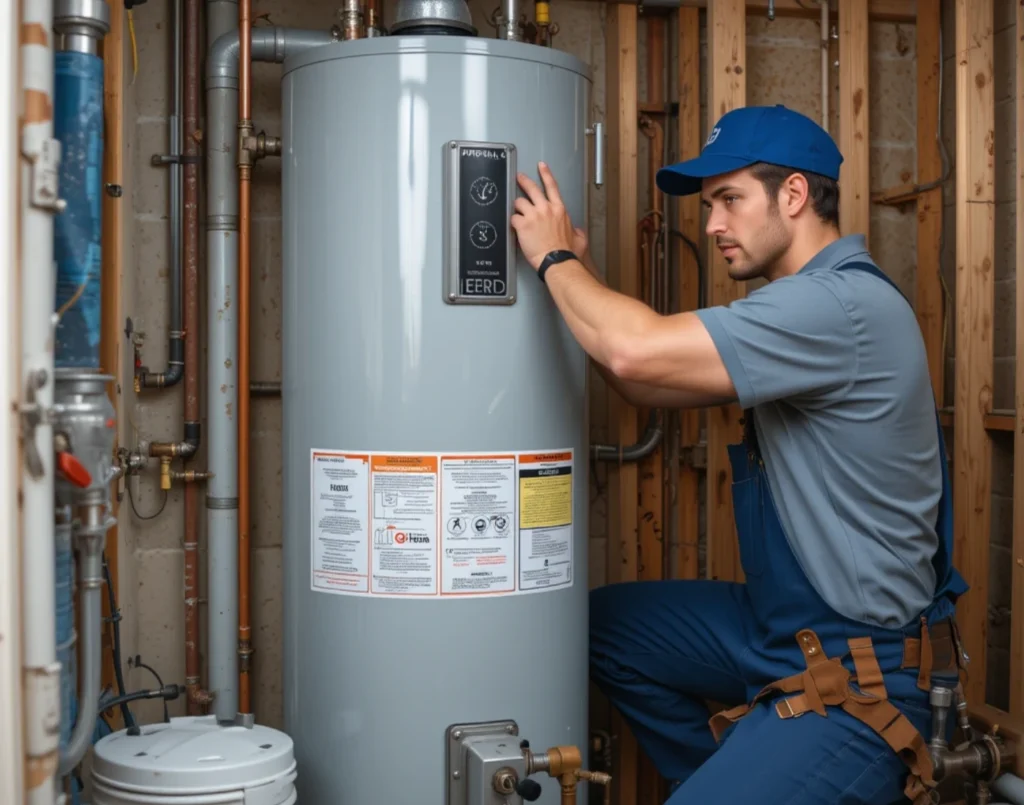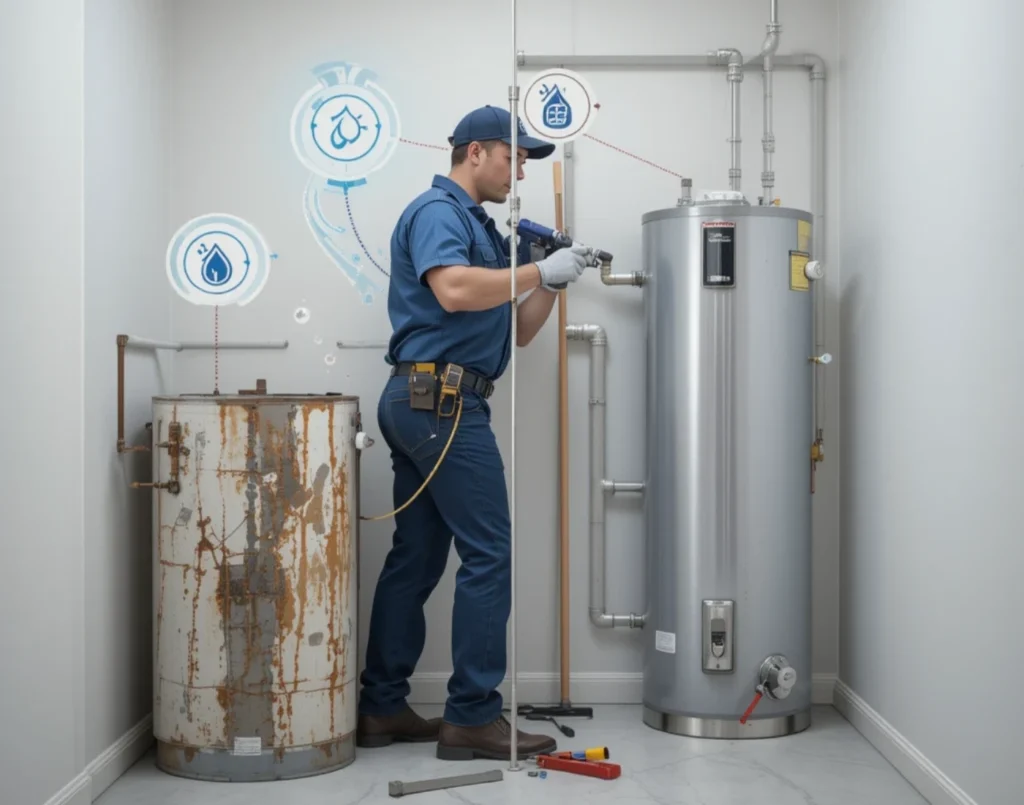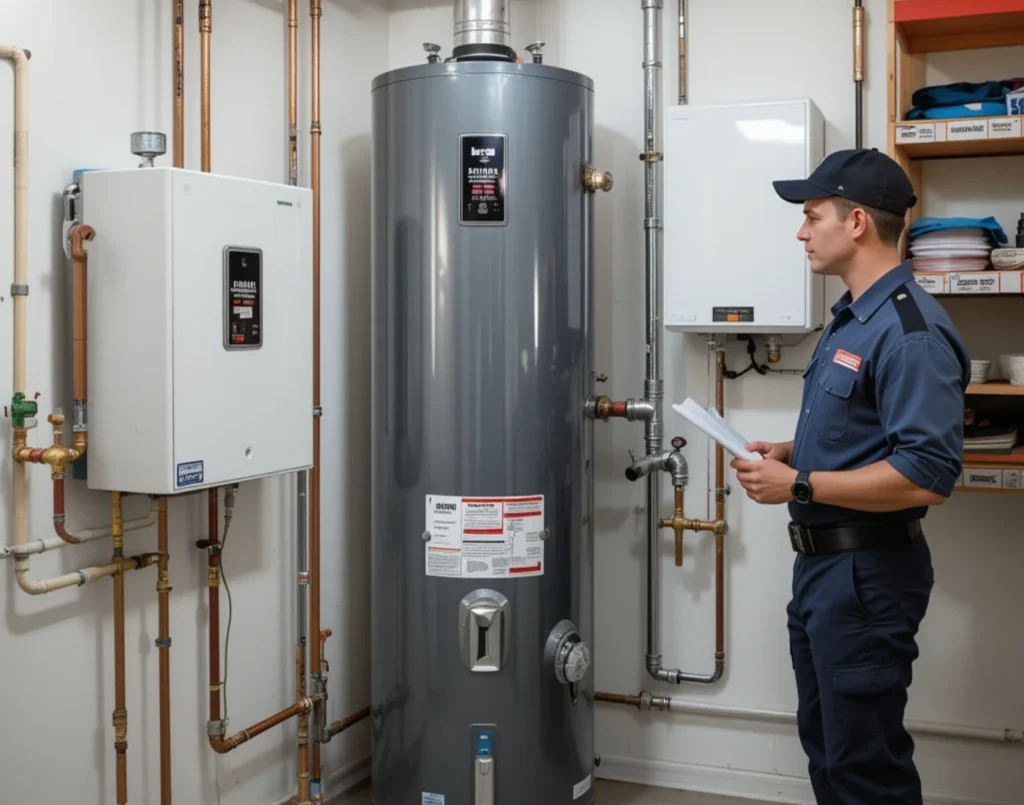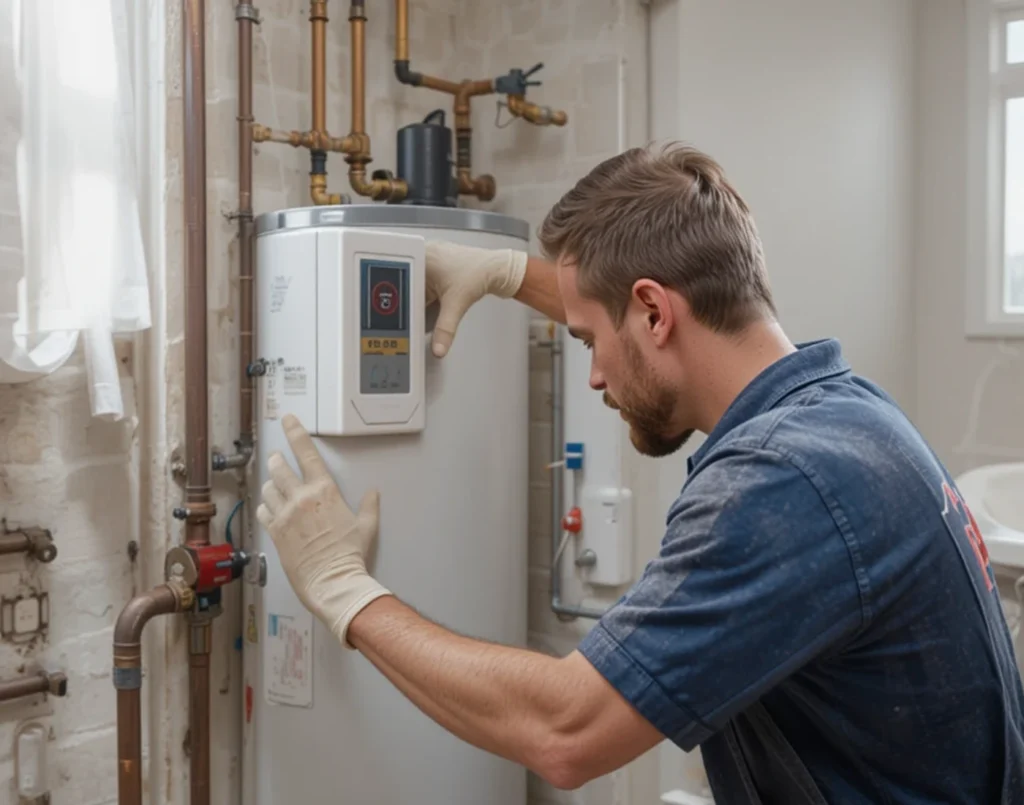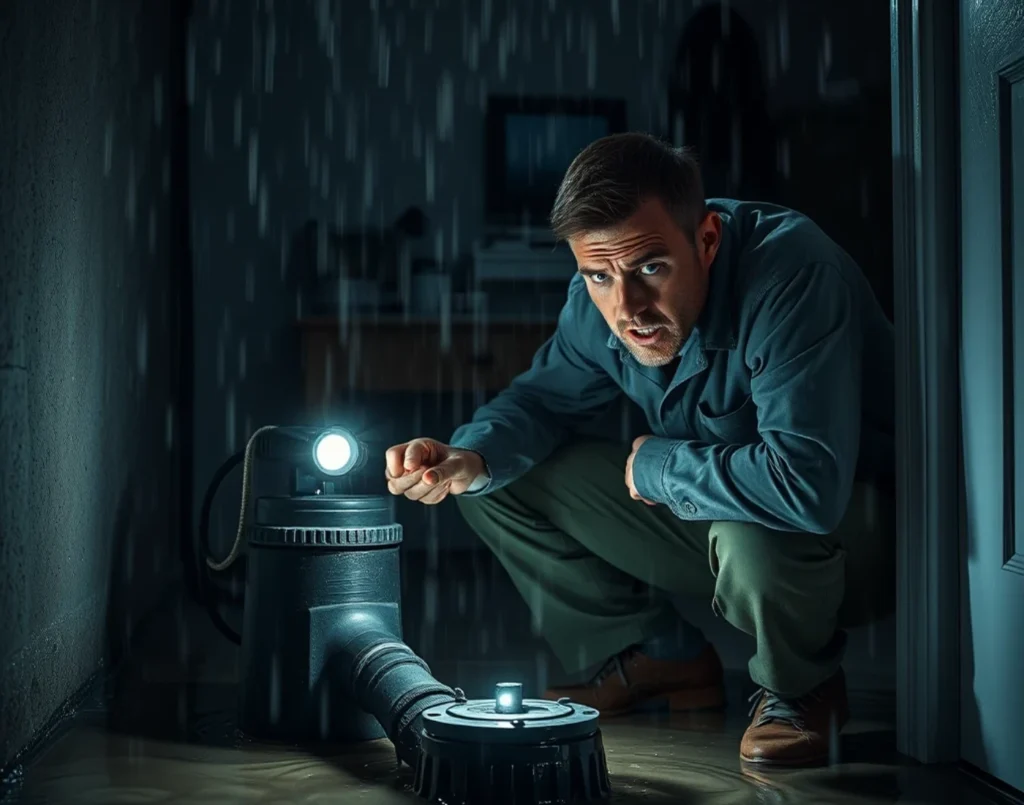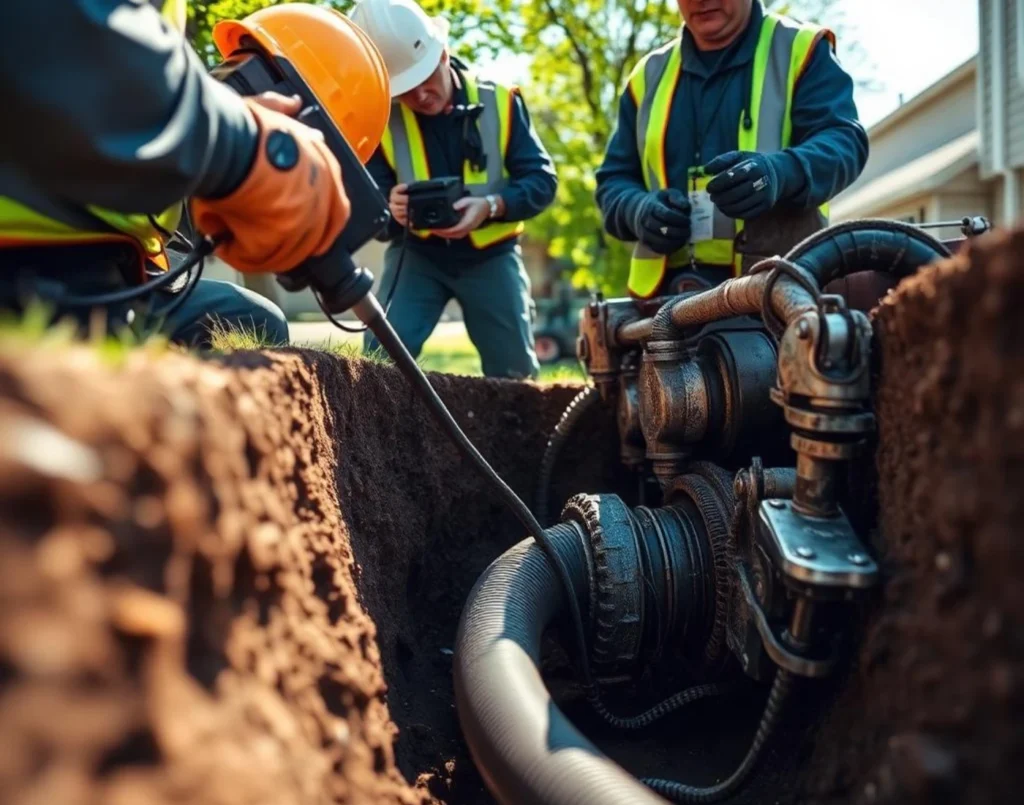How to Choose the Right Plumber for Your Home can be daunting, but with the right approach, you can find a reliable professional for your plumbing needs. Start by ensuring the plumber is licensed, insured, and has a solid reputation. Look at customer reviews, ask for recommendations, and compare quotes. Always prioritise and ensure clear communication to ensure the plumber meets your needs. Following these expert tips, you can select the best plumber for your home.
When choosing a plumber, ensure they are licensed, insured, and have good reviews. Compare quotes, check for guarantees, and prioritise and ensure clear communication. This will help you find a reliable plumber for your home.
Understanding the Importance of choosing the right plumber
A straightforward leaky tap repair can become a nightmare if the wrong plumber is hired. Homeowners risk losing money if unlicensed contractors damage pipes or skip building codes.
- Water pressure systems and flow dynamics
- Local regulations and permit rules
- Building codes specific to your area
- Energy-efficient solutions that reduce long-term costs
A skilled plumber prevents small issues from becoming major problems. They find possible problems during regular maintenance. Then, they suggest solutions to help protect your property value. Bad plumbing can lead to health risks. It may cause contaminated water, gas leaks, and mould growth. Quality professionals prioritise alongside functionality, ensuring your family’s needs.
Verify Credentials and Licensing
Importance of Licensing
Licensed plumbers have completed the required training and passed examinations proving their competency. In Washington State, licensing requires certain hours for apprenticeship and ongoing education.
Never hire unlicensed contractors for plumbing work. They can’t perform major installations. Their work might break city codes. This creates liability issues and potential problems when selling your home.
Checking Certifications
Beyond basic licensing, look for additional certifications that demonstrate specialised
- CKFlow testing certification
- Water treatment services training
- Specific manufacturer certifications for water heaters
- Green plumbing technology credentials
These certificates promise to stay updated on best practices and new developments.
Ensuring Adequate Insurance Coverage
Every plumber must have liability insurance and workers ‘ compensation. This protects you and your property. Before any work begins, requesting insurance coverage certificates as proof is essential. Liability insurance protects your home from damage caused by the plumber during repairs. Workers ‘ compensation protects you from financial responsibility if someone is injured on your property. Without these protections, you could be exposed to serious financial risks. Reputable plumbing companies are clear and quick to share their insurance papers. Any plumber who hesitates or makes excuses should be avoided.
Evaluate Experience and Reputation
Online reviews offer crucial insights into customer satisfaction, helping assess service quality and identify improvement areas.
Check multiple platforms, including:
- Google Reviews for local search visibility, Angie’s stellar customer testimonials
- Better Business Bureau ratings
- SpecSpecializedde websites
Check specific comments on work quality, pricing transparency, and problem resolution. Don’t forget overall ratings.
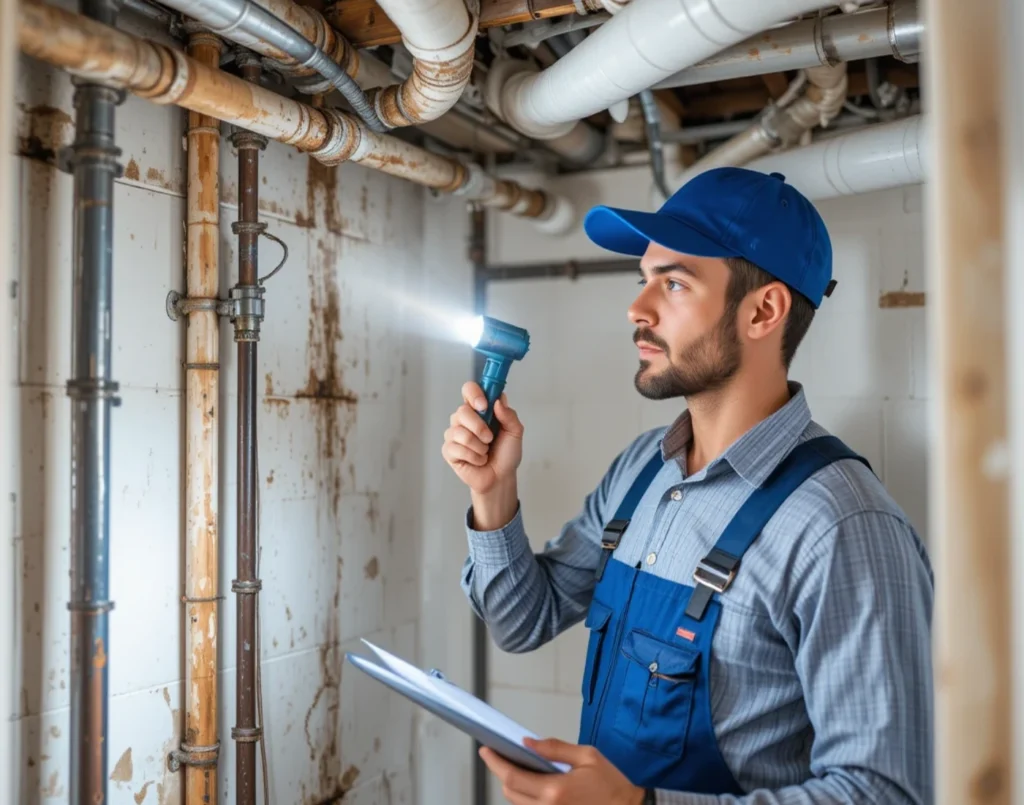
Seeking Personal Referrals
Expert plumbers provide unambiguous assurances for their services. Ask friends, neighbours, and your real estate agent for recommendations. Local hardware stores frequently know reputable contractors in the area. Professional referrals from other tradespeople also carry weight. Electricians, general contractors, and home inspectors team up with plumbers. They can spot top-notch professionals.
AnalAnalyzingdback Patterns
Pay attention to recurring themes in customer feedback. Consistent complaints about pricing, punctuality, or work quality indicate systemic problems.
Look for mentions of:
- Prompt response time for emergencies
- Clean work habits and job site respect
- Clear communication throughout projects
- Follow-up service and warranty support
Hudson Plumbing, Michael Runk Plumbing and Heating, and BlackJade Plumbing are well-regarded. They achieve this by providing consistently positive customer experiences.
Compare Rates and Service Offerings
When hiring a plumber, it’s important to understand the fee structures they offer. Many plumbing services use flat-rate pricing for certain jobs. This shows clear costs from the start. For complex diagnostics, plumbers often charge by the hour. They base their rates on the time it takes to fix the problem. After-hours calls often have added emergency service premiums. This shows how urgent the work is.
Additionally, plumbers may charge trip fees to cover the cost of travel to your location. Request a detailed cost estimate to avoid surprise costs. This should include labour, materials, and any extra fees for the service.
Assessing Value for Money
When assessing value for money, it’s important to look beyond the price. A lower cost seems appealing. But you should check the service quality, product lifespan, and provider reputation. Consider the providers ‘ or materials and the warranties or guarantees they offer. A good assessment compares the benefits to the price. This lets you see if the service or product meets your needs and expectations.
Consider the total cost, including:
- Quality of materials used
- Warranty coverage provided
- Likelihood of future problems
- Customer service quality
Skilled plumbers might cost more at first. However, they often save you money using quality work and good materials.
Ask Relevant Questions
Guarantees and Warranties
Professional plumbers offer clear guarantees to ensure the quality of their work. When you hire a plumber, ask about the warranty for each service. Check what the warranty covers. See if it includes both parts and labour. Also, inquire about the process for addressing warranty issues if they arise. Quality contractors offer warranties that vary. This gives you peace of mind, knowing their work is guaranteed.
Project Timelines
Reliable plumbers provide realistic timelines and communicate delays promptly.
- Expected start and completion dates
- Factors that might cause delays
- Communication protocols for timeline changes
- Availability for emergency services
Payment Terms and Conditions
Before starting any plumbing work, know the payment expectations. This helps avoid surprises. Trusted plumbers might ask for a deposit. This helps pay for materials, especially on big jobs. In these cases, outline a clear payment schedule. It should say when each instalment is due. Check the accepted payment methods: cash, check, or credit card. Also, ask about policies for change orders if the work scope changes. Avoid contractors who ask for full payment up front. Good plumbers usually ask for partial payment at the start. You pay the rest after they finish the work and you’re hired.
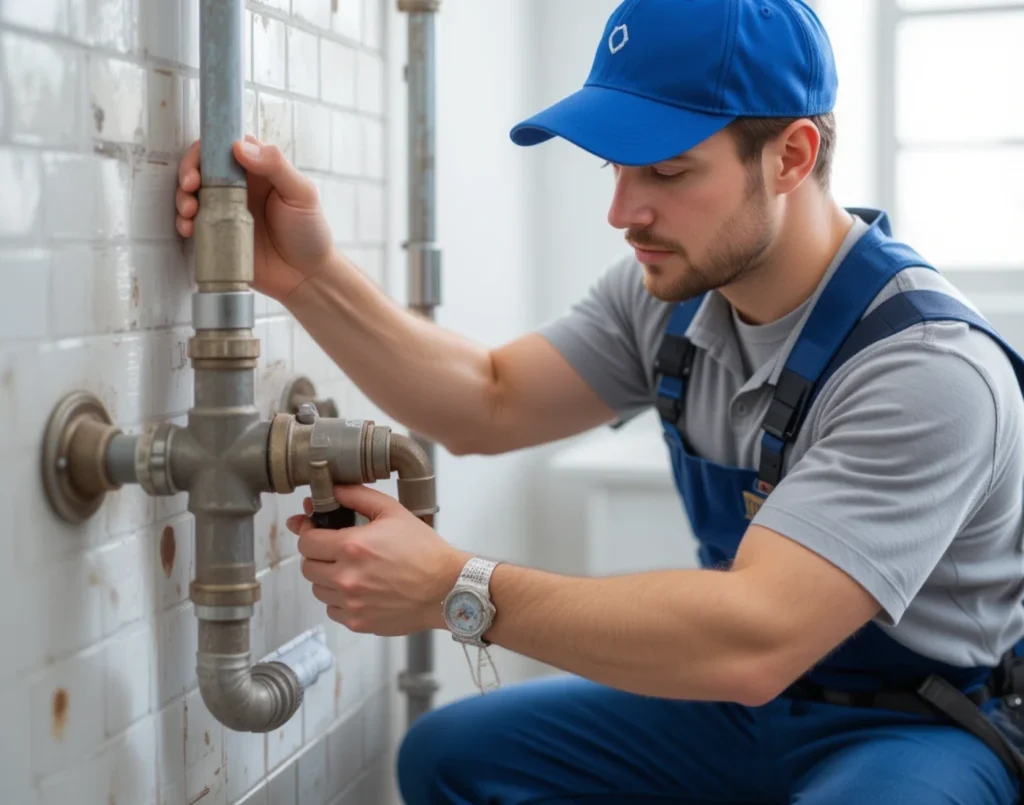
Assess Communication and Availability
Response Time for Emergencies
Plumbing emergencies like burst pipes or gas leaks require immediate attention.
- Emergency services availability
- Typical response time for urgent calls
- After-hours contact procedures
- Emergency service pricing
Emergency plumbing services available 24/7 give you peace of mind in tough times.
Evaluating Communication Efficiency
Clear communication helps avoid misunderstandings. It also boosts satisfaction with your plumbing project. When looking for plumbers, notice how clearly they explain problems and solutions. A good plumber should respond quickly to your questions. Good communication skills show professionalism and a true focus on customer service. These traits are key to a trustworthy contractor.
Consider Versatility and Range of Services
Ability to Handle Various Plumbing Tasks
Comprehensive plumbers handle diverse issues without requiring multiple contractors. Look for capabilities including:
- Clogged drains and blocked drains clearing
- Water heater installation and repair
- Sink fixtures and faucet replacement
- Hot water system maintenance
- Water filtration unit installation
- Plumbing inspections for home purchases
This versatility saves time and builds ongoing relationships for future needs.
Insights into Cost-Saving Maintenance Practices
Skilled plumbers provide tips to save water and cut energy use.
- Identify efficiency improvements during repairs
- Recommend upgrade timing to avoid emergency replacements
- Suggest preventive maintenance schedules
- Provide water treatment options for better system longevity
Making the Right Choice for Your Home
Choosing a plumber requires careful evaluation of credentials, experience, and communication skills. Investing in research brings rewards. You get quality work, fair pricing, and dependable long-term service.
Start your search before you need emergency repairs. A good bond with a trusted plumber means quick, quality help when issues arise. Your plumbing needs expert care. Trust licensed professionals who prioritise action.
Read Also: Choosing the Right Plumber for Your Home: A Simple Guide
Frequently Asked Questions
1. How do you describe a good plumber?
A good plumber is skilled, reliable, and communicative. They have a solid understanding of plumbing systems, provide accurate solutions, and offer timely, professional service. A good plumber also maintains a clean work environment and respects your home.
2. What skills do you need for plumbing?
Plumbing requires combining technical skills, including problem-solving, pipe installation, and maintenance. Plumbers must also have good manual dexterity, physical strength, and a solid understanding of safety protocols, building codes, and local regulations.
3. How do you know if a plumber is legitimate?
To verify if a plumber is legitimate, check their license and insurance. Read customer reviews, ask for references, and ensure they provide written estimates. A legitimate plumber will be transparent about pricing and services.
4. What type of plumber makes the most?
Specialised gas fitters or commercial plumbers often earn the most due to their expertise in handling complex systems and high-demand projects. Their advanced certifications and knowledge can command higher residential and commercial plumbing rates. rates
5. How to deal with a bad plumber?
A bad plumber tries to communicate the issue. If the problem persists, consider getting a second opinion from another professional. If the work is unsatisfactory, you may need to file a complaint with a local licensing authority or seek a refund.


